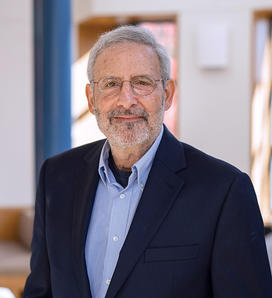Politics Professor Warns of ‘Backsliding Democracy’ in U.S.
Mark Beissinger says undermining democratic norms can spur a shift toward autocracy

As the United States hurls toward yet another contentious presidential election, one familiar line of attack against former President Donald Trump is the claim that he is a threat to democracy. PAW spoke with Mark Beissinger, a professor of politics at Princeton who researches democracy, revolutions, state-building, and nationalism, especially in former Soviet states. In this conversation, he explains the concept of “democratic backsliding” — when democratic norms are undermined, public participation is limited, and regime change begins to shift a state toward autocracy.
Can you share any insights on the state of the upcoming U.S. presidential election?
Trump made it clear when he was president that he did not want to allow the political system or the population to exercise its electoral choice. If he had his way, he would have pressured Congress to reverse the outcome of the election. Luckily, that didn’t happen.
However, since then, he’s engaged in falsehoods about what actually took place. He continues to propagate the lie that the electoral process was rigged and that the outcome was not as it turned out to be. That’s very dangerous for democracy. The idea that the electoral process itself is not working as it should is exactly the kind of thing that would destabilize a country, a democracy, and we’ve seen that elsewhere, as well.
Trump has set things up again to replay that election, to some extent, although this time, I think he has no intention of handing power back.
What would democratic backsliding look like in the U.S.?
I think it would involve the hollowing out of institutions, so that they are not playing the roles that they were intended to play and no longer exercise any constraint over executive power. It would look like a hollowing out of individual freedoms, the right to express dissent, the ability of the press to hold the executive accountable. So, censorship often creeps in. It can creep in in subtle ways, sometimes through complex arrangements of ownership over the press, where those who are close to the executive are able to control what does and doesn’t get published. Eventually, that can evolve into a much more overt system of censorship, as it did in Russia.
What is the role of universities in times of democratic backsliding?
So, universities have been unusual oases of freedom of speech and toleration. I found [crackdowns on campus protests in spring 2024] to be quite troublesome in that regard. What would happen if a would-be dictator were elected? If they wanted to go after universities, they would do just that. That is, they would find the polarizing issue, generate pressure on universities to self-police, to try to crack down and to undermine the authority of universities, and the authority of those who have knowledge — because [universities are] an independent source of influence and power in society.
How is democratic backsliding possible in a country built on a separation of powers and a constitution?
One of the advantages of the American system in this regard is federalism, because it limits the ability of the federal government, at least in theory, to control what’s going on in the states and affirms the independence of state government — but only under certain circumstances. The fact is that independence can be overruled through the court system. So, control over the court system is a critical lever that determines how the law is going to be interpreted. If you look at the types of systems that have been particularly susceptible to backsliding, they concentrate power in the hands of an executive.
It’s much harder for democratic backsliding to take place when the political system is fragmented into multiple parties. But in a two-party system, or in a system where a single party can dominate the electoral system, then it’s much more likely.
How can Americans recognize when things start to go too far?
Democratic backsliding is a process, not a moment. To transform into real dictatorship, it requires many different steps along the way. It’s sometimes hard to identify when things have actually tipped precisely because of that. There are many little things that we take for granted in a democracy that, all of a sudden, you could turn around and say, “Oh, well, this and that, and that other thing, no longer seem to operate.” It’s very important to stop the process before it gets too far along.
Is it possible to stop democratic backsliding?
Democratic backsliding is potentially reversible. It’s not a one-way street. There have been cases — for instance, in Poland — where we’ve seen democratic backsliding taking place, and then populations are able to reverse it at the ballot box, or they engage in protests and have pushed would-be dictators out of office. So that can happen. But that’s why maintaining control over the media and maintaining control over the electorate is very important for these kinds of leaders.
This interview has been edited and condensed.











No responses yet